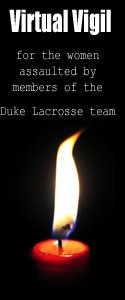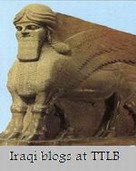filmmaker Shamim Sarif in LA at USC
SCA Events
Oct 21, 2008
Special screening of I CAN'T THINK STRAIGHT and THE WORLD UNSEEN
Time: 7:00PM - 10:30PM
Location: George Lucas Building, Room 108, 850 W. 34th Street, Los Angeles, CA 90007
make reservations »
I Can't Think Straight & The World Unseen
7:00PM on Tuesday, October 21st, 2008
George Lucas Building, Room 108
850 W. 34th Street, Los Angeles, CA 90007
7:00PM: I Can't Think Straight (2007), directed by Shamim Sarif, 80min.
8:30PM: Q&A with director Shamim Sarif, producer Hanan Kattan and actress Sheetal Sheth
9:00PM: The World Unseen (2007), directed by Shamim Sarif, 94min., rated PG-13.
ABOUT I CAN'T THINK STRAIGHT
I Can’t Think Straight focuses on the relationship between the spirited Christian Tala (Lisa Ray) and the shy Muslim Leyla (Sheetal Sheth) and the trouble that their love affair causes for them and their families. Tala, a London-based Palestinian, prepares for an elaborate wedding with her fiancé, when she encounters Leyla, a young British Indian woman who is dating her best friend Ali. The two women could not be more different from each other, but the attraction is immediate. Tala’s feisty nature provokes Leyla out of her shell and soon both women reveal their feelings for each other.
I Can't Think Straight will be released by Regent Releasing and here! Films in Los Angeles on Friday, November 24th, 2008.
To learn more about the film, visit www.icantthinkstraightfilm.com
ABOUT THE WORLD UNSEEN
Miriam (Lisa Ray) is a doting mother to her children and a demure and subservient wife to her chauvinistic, frustrated husband, Omar. Quietly intelligent, Miriam has never assumed that she may have choices in life.
When Miriam meets Amina, their unexpected attraction throws them both off balance. Although Miriam manages to subdue her fascination with unconventional Amina, she finds herself slowly inspired to confront familiar and familial constraints.
Using the stunning South African landscape and jazz tunes of the time, The World Unseen explores a system that divides white from black and women from men, but one that might just allow an unexpected love to survive.
The World Unseen will be released by Regent Releasing in Los Angeles on Friday, November 7th, 2008.
To learn more about the film, visit www.theworldunseenfilm.com
ABOUT THE GUESTS
From never having been on a film set before to being the driving creative force behind not one, but two full-length motion pictures due for release in the same month, Shamim Sarif and Hanan Kattan have achieved goals beyond their wildest dreams.
Sarif made waves in the literary world when her first novel, The World Unseen, was published to critical acclaim. Sarif subsequently adapted the screenplay for the feature film of The World Unseen, which she also directed, but not before making her directorial debut with I Can’t Think Straight, another of her novels that she adapted for the screen. Both films will be released in the US and Canada during November 2008.
Commenting on the all-female team, Kattan says: “There was a lot of passion, a lot of positive emotions and a lot of multi-tasking and co-operation.
“Both our projects happened to attract a lot of women, from producers to heads of departments, and it is a blessing to work with so many talented and passionate women who have integrity and who deeply understand the messages and stories being told."
With a longstanding business and personal relationship, Sarif and Kattan combine forces as a powerful symbiotic team.
To learn more about Englightenment Productions, visit www.enlightenment-productions.
ABOUT CHECK-IN & RESERVATIONS
Doors will open at approximately 6:00PM. Guests may check in at the reservations desk under their last name. We kindly ask that you not bring food or drink into the theater.
ABOUT PARKING
The George Lucas Building is located at 850 W. 34th St., Los Angeles, CA 90007. Parking passes may be purchased for $8.00 at USC Entrance Gate #5, located at the intersection of W. Jefferson Blvd. & McClintock Avenue. We recommend parking in outdoor Lot M or V, or Parking Structure D, at the far end of 34th Street. Please note that Parking Structure D cannot accommodate tall vehicles such as SUVs. Street parking is also available along W. Jefferson Boulevard (meters are free after 6:00PM).
For a map of the USC campus (Norris Cinema Theatre, NCT, is N.10 in blue), please access the following website: http://www.usc.edu/assets/





.jpg)








 -->
-->